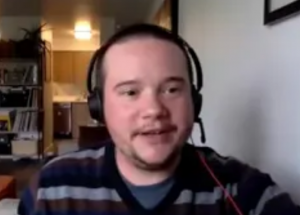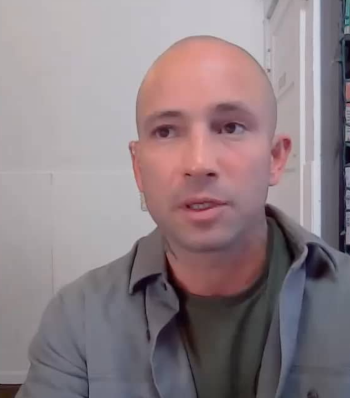Identity Crisis Episode 15: How to Survive Cancellation Part 2
This episode is the second part of a two part series on surviving cancellation (part one is episode 14). MK and Sasha talk about how to rebuild after a cancellation or firing.
This episode is the second part of a two part series on surviving cancellation (part one is episode 14). MK and Sasha talk about how to rebuild after a cancellation or firing.
 Aaron Terrell is a transman who is critical of gender identity ideology and the trans movement, as well as other elements of woke/identitarian culture. He joins me for a chat about his new Substack, Trans Trending, the comparisons he makes between the religious elements of gender ideology and his own evangelical upbringing, as well as AGP men, the distinction between true transphobia and the oft-thrown accusation of it, and much more.
Aaron Terrell is a transman who is critical of gender identity ideology and the trans movement, as well as other elements of woke/identitarian culture. He joins me for a chat about his new Substack, Trans Trending, the comparisons he makes between the religious elements of gender ideology and his own evangelical upbringing, as well as AGP men, the distinction between true transphobia and the oft-thrown accusation of it, and much more.
 In 2015, I lost my mother to suicide only a few weeks after being fired from what I believed was my dream job. At a time when I already lacked stability, I suddenly had to step up and help provide for my family.
In 2015, I lost my mother to suicide only a few weeks after being fired from what I believed was my dream job. At a time when I already lacked stability, I suddenly had to step up and help provide for my family.
While everyone’s situation is unique, and I’ve certainly enjoyed some privileges that have aided my ability to bounce back each time, these are the skills that have helped me survive the immediate aftermath of being cancelled.
This episode is the first half of a two-part series on surviving cancellation. In this episode, we dish on our own cancellation stories, and share memories of how we got through the firings, smears, and cultural condemnation.
 Vincent Emanuele is a community organizer, US Marine Corps veteran, and host of the YouTube channel PARC Media. He is the co-founder of the PARC (Politics Art Roots Culture) Community-Cultural Center, located in Michigan City, Indiana.
Vincent Emanuele is a community organizer, US Marine Corps veteran, and host of the YouTube channel PARC Media. He is the co-founder of the PARC (Politics Art Roots Culture) Community-Cultural Center, located in Michigan City, Indiana.
Vincent joins me for a discussion about grassroots organizing, class based issues in today’s political climate, and his thoughts on moving the conversation past wokeism or anti-wokeism.
This week we follow up our discussion on the Arkansas bill, which banned transition procedures for minors, with a discussion about teenage social contagions. We talk about how the social contagion of our teen years was self-harm, and the tragic fact that today's contagion—rapid onset gender dysphoria—cannot be outgrown if taken too far.
 One side — my side — starts with the foundational assumption that everyone, trans or not, is first and foremost to be treated as an individual, no more or less equally deserving of respect than any other individual, and then builds from there. Of course I understand how much sensitivity there is in the transgender community about, say, pronouns. I’m a gay man; I’m deeply embedded in the gay community. I even worked at a trans bar back in the day. But I don’t take it as religious doctrine that anyone who simply claims to be a transgender woman is one — I don’t believe in gender religion and I reserve the right to have my own beliefs about anyone — and I don’t take it as law that I have to abide anyone’s pronouns. I aim to be respectful, but it’s case-by-case, and I’m the judge.
One side — my side — starts with the foundational assumption that everyone, trans or not, is first and foremost to be treated as an individual, no more or less equally deserving of respect than any other individual, and then builds from there. Of course I understand how much sensitivity there is in the transgender community about, say, pronouns. I’m a gay man; I’m deeply embedded in the gay community. I even worked at a trans bar back in the day. But I don’t take it as religious doctrine that anyone who simply claims to be a transgender woman is one — I don’t believe in gender religion and I reserve the right to have my own beliefs about anyone — and I don’t take it as law that I have to abide anyone’s pronouns. I aim to be respectful, but it’s case-by-case, and I’m the judge.
Suicide is a national public health crisis. It's also preventable, and there are things we know from decades of public research that can either increase the risk of suicide or decrease it. In the wake of a series of new bills in Arkansas meant to address the gender identity crisis in sports, medicine, and schools, trans "advocates" are foreshadowing an impending epidemic of suicide among trans-identifying youth. In doing so, they are flying in the face of all known research on preventing suicide, and quite possibly creating the very problem they claim they've set out to solve.